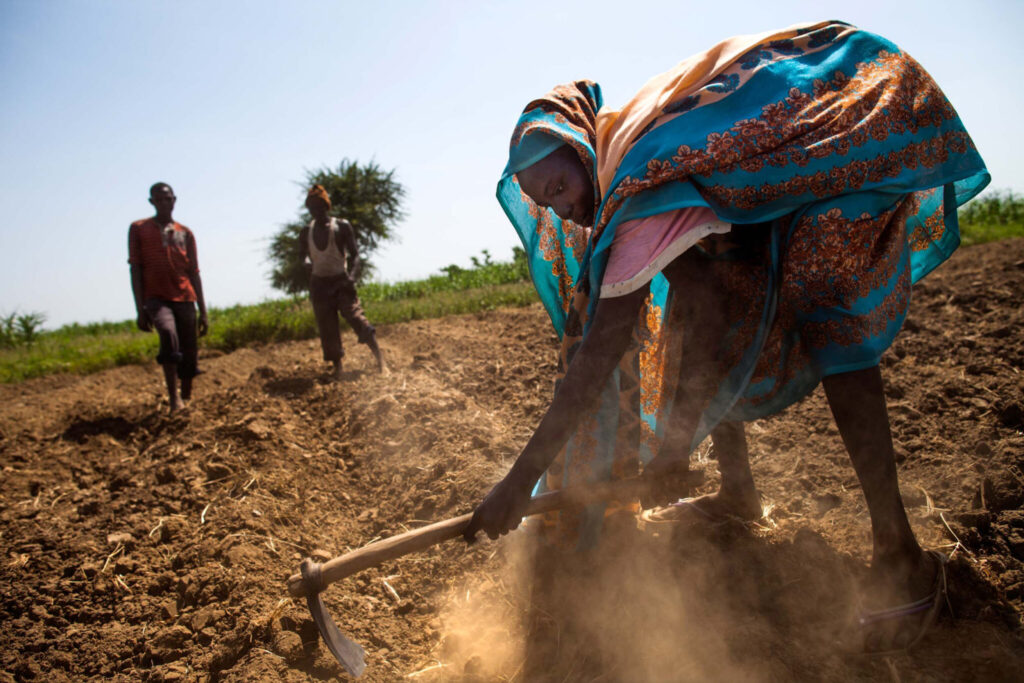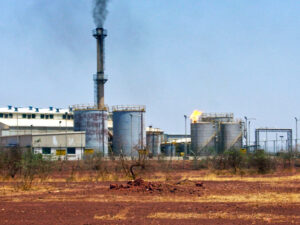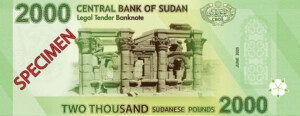Farmers in El Gedaref face harvest crisis amid Sudan cash shortage

Farmers in West Darfur (File photo: Albert González Farran / UNAMID)
Farmers in Sudan’s El Gedaref state have warned of a disastrous upcoming harvest season due to crippling cash shortages and logistical barriers. The currency replacement process has exacerbated liquidity issues, leaving agricultural workers unable to pay labourers and sustain their operations.
Former independent Member of Parliament for El Fashaga, Mubarak El Nour, speaking to Radio Dabanga earlier today, states, “Farmers were unable to harvest their crops due to the lack of liquidity.”
He explained that agricultural workers rely heavily on labourers from neighbouring countries, particularly Ethiopia and South Sudan, who are unable to open bank accounts under stringent directives from the Central Bank of Sudan.
El Nour also highlights that farmers cannot meet workers’ demands for cash payments because banks impose a daily withdrawal limit of SDG200,000.
He notes that the failure to pay workers could result in the failure of the harvest season, the sale of projects to shepherds, and security tensions between workers and farmers. Adding that, unresolved tensions could lead to protests, crop destruction, and even assaults on farmers.
The former MP also revealed that a delegation of farmers previously met with the authorities responsible for currency replacement but found no support.
El Nour held the Supreme Committee for the Replacement of Currency, headed by Sovereignty Council member Lt Gen Ibrahim Jaber, as responsible for these failures.
While farmers have harvested sesame and peanuts from three million acres, heavy rainfall, and pest infestations have caused poor yields.
Reports indicate that unharvested crops such as corn, millet, and cotton, covering at least seven million acres remains at risk. The success of the harvest season, El Nour stressed, is contingent on the availability of liquidity.
In Kassala, the cash crisis is equally dire. Sources told Radio Dabanga that banks sometimes reduce daily withdrawal limits to SDG50,000, crippling markets and forcing essential institutions, including hospitals, to demand cash payments instead of accepting bank transfers.
Port Sudan
In Port Sudan, an agricultural workshop organised by the Beja leaders in eastern Sudan, addressed key challenges in the Red Sea state, yesterday. Discussions focused on agricultural research, livestock, fisheries, and the Toker Delta Agricultural Scheme*.
Engineer Ali Mohammed Othman, chair of the workshop’s technical committee, noted the invasive mesquite tree as a major problem, saying it “covers about 50 per cent of cultivated areas and pastures.”
Financing, as well as the management of agricultural projects were also identified as critical challenges.
The workshop recommended increased attention to the agricultural sector, calling for investment in industrialisation, improved irrigation systems, and enhanced export infrastructure for cotton and oilseeds.
Key regions such as Khor** Baraka and Khor Arab were identified as priorities for development.
*The Toker Delta Agricultural Scheme is one of the oldest agricultural projects in Sudan and the town of Toker used to be an important agricultural and commercial centre. The scheme was established in 1867 during the reign of Mumtaz Pasha, governor of Suakin, who instructed the cultivation of cotton as major crop. The climate in the region, however, included monsoon winds, which prompted a large number of farmers in the scheme to change to other crops.
**A khor is a seasonal watercourse.











 and then
and then